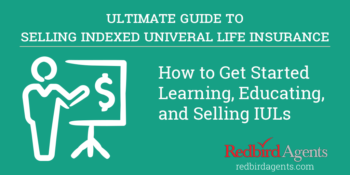All Categories
Featured
Table of Contents
1), usually in an effort to defeat their group averages. This is a straw guy argument, and one IUL people like to make. Do they compare the IUL to something like the Lead Total Securities Market Fund Admiral Shares with no tons, an expenditure ratio (EMERGENCY ROOM) of 5 basis factors, a turn over proportion of 4.3%, and a remarkable tax-efficient document of circulations? No, they contrast it to some awful proactively handled fund with an 8% load, a 2% ER, an 80% turn over ratio, and an awful record of temporary resources gain circulations.
Mutual funds often make yearly taxable circulations to fund owners, also when the value of their fund has actually decreased in worth. Mutual funds not just need revenue coverage (and the resulting yearly taxes) when the shared fund is increasing in value, however can also enforce revenue tax obligations in a year when the fund has actually dropped in worth.
That's not how shared funds function. You can tax-manage the fund, gathering losses and gains in order to reduce taxable distributions to the investors, yet that isn't in some way going to transform the reported return of the fund. Only Bernie Madoff kinds can do that. IULs prevent myriad tax catches. The ownership of shared funds may call for the mutual fund owner to pay approximated tax obligations.

IULs are very easy to place to ensure that, at the owner's fatality, the recipient is not subject to either income or estate tax obligations. The very same tax decrease strategies do not work almost too with shared funds. There are various, often pricey, tax obligation traps connected with the timed purchasing and marketing of mutual fund shares, catches that do not relate to indexed life Insurance coverage.
Possibilities aren't very high that you're mosting likely to be subject to the AMT because of your mutual fund circulations if you aren't without them. The rest of this one is half-truths at best. While it is real that there is no earnings tax due to your successors when they acquire the proceeds of your IUL plan, it is likewise real that there is no earnings tax due to your heirs when they acquire a common fund in a taxed account from you.
Universal Life Insurance Rates
The government estate tax obligation exemption limit is over $10 Million for a pair, and growing each year with inflation. It's a non-issue for the huge bulk of doctors, a lot less the remainder of America. There are better methods to prevent inheritance tax concerns than getting financial investments with reduced returns. Common funds might trigger revenue tax of Social Safety and security advantages.

The growth within the IUL is tax-deferred and might be taken as free of tax revenue by means of financings. The plan proprietor (vs. the shared fund supervisor) is in control of his/her reportable earnings, therefore allowing them to minimize or perhaps remove the taxation of their Social Safety benefits. This is great.
Here's one more very little issue. It's real if you buy a common fund for claim $10 per share right before the circulation date, and it distributes a $0.50 distribution, you are after that mosting likely to owe tax obligations (probably 7-10 cents per share) despite the reality that you haven't yet had any type of gains.
In the end, it's actually concerning the after-tax return, not how much you pay in taxes. You're also possibly going to have even more cash after paying those taxes. The record-keeping requirements for possessing common funds are dramatically extra complicated.
With an IUL, one's records are kept by the insurance policy company, duplicates of yearly declarations are sent by mail to the owner, and circulations (if any type of) are completed and reported at year end. This one is additionally sort of silly. Obviously you must maintain your tax obligation records in case of an audit.
Best Universal Life Insurance
All you have to do is push the paper right into your tax obligation folder when it appears in the mail. Barely a reason to get life insurance policy. It resembles this man has actually never ever purchased a taxable account or something. Common funds are typically part of a decedent's probated estate.
On top of that, they are subject to the delays and costs of probate. The profits of the IUL policy, on the other hand, is always a non-probate distribution that passes beyond probate straight to one's called beneficiaries, and is for that reason exempt to one's posthumous financial institutions, undesirable public disclosure, or comparable delays and prices.
Medicaid disqualification and life time income. An IUL can give their owners with a stream of income for their whole life time, no matter of just how lengthy they live.

This is beneficial when arranging one's events, and converting possessions to revenue prior to an assisted living facility arrest. Shared funds can not be transformed in a similar manner, and are generally thought about countable Medicaid properties. This is another foolish one supporting that inadequate people (you recognize, the ones that need Medicaid, a government program for the inadequate, to spend for their nursing home) ought to use IUL rather of mutual funds.
Ul Mutual Life Insurance
And life insurance looks dreadful when compared fairly against a pension. Second, individuals that have cash to get IUL over and beyond their retired life accounts are mosting likely to need to be awful at managing cash in order to ever certify for Medicaid to pay for their retirement home prices.
Persistent and incurable illness biker. All plans will permit a proprietor's easy accessibility to cash from their policy, often forgoing any kind of surrender fines when such individuals endure a significant illness, require at-home care, or come to be confined to an assisted living home. Shared funds do not offer a comparable waiver when contingent deferred sales charges still put on a shared fund account whose proprietor needs to offer some shares to money the prices of such a stay.
Indexed Universal Life Insurance Versus Life Insurance Policy
You get to pay more for that benefit (motorcyclist) with an insurance policy. Indexed global life insurance coverage offers fatality advantages to the beneficiaries of the IUL owners, and neither the proprietor neither the beneficiary can ever lose money due to a down market.
I certainly do not need one after I reach financial independence. Do I want one? On average, a buyer of life insurance policy pays for the real price of the life insurance policy benefit, plus the costs of the policy, plus the revenues of the insurance policy business.
Guaranteed Universal Life Insurance Definition
I'm not entirely sure why Mr. Morais tossed in the entire "you can't shed cash" once more here as it was covered rather well in # 1. He just wished to duplicate the most effective marketing factor for these things I suppose. Once more, you do not shed nominal dollars, however you can shed actual dollars, as well as face major chance price due to reduced returns.

An indexed global life insurance coverage plan owner may trade their policy for an entirely different plan without triggering earnings tax obligations. A shared fund owner can not move funds from one common fund company to an additional without offering his shares at the former (thus setting off a taxed occasion), and buying new shares at the last, commonly subject to sales fees at both.
While it is true that you can exchange one insurance plan for another, the factor that people do this is that the very first one is such an awful policy that even after buying a brand-new one and experiencing the early, negative return years, you'll still come out in advance. If they were offered the right policy the very first time, they should not have any type of need to ever before exchange it and go through the early, negative return years once more.
Latest Posts
Indexlife
Indexed Universal Life Insurance Vs Term
Term Life Insurance Vs Universal